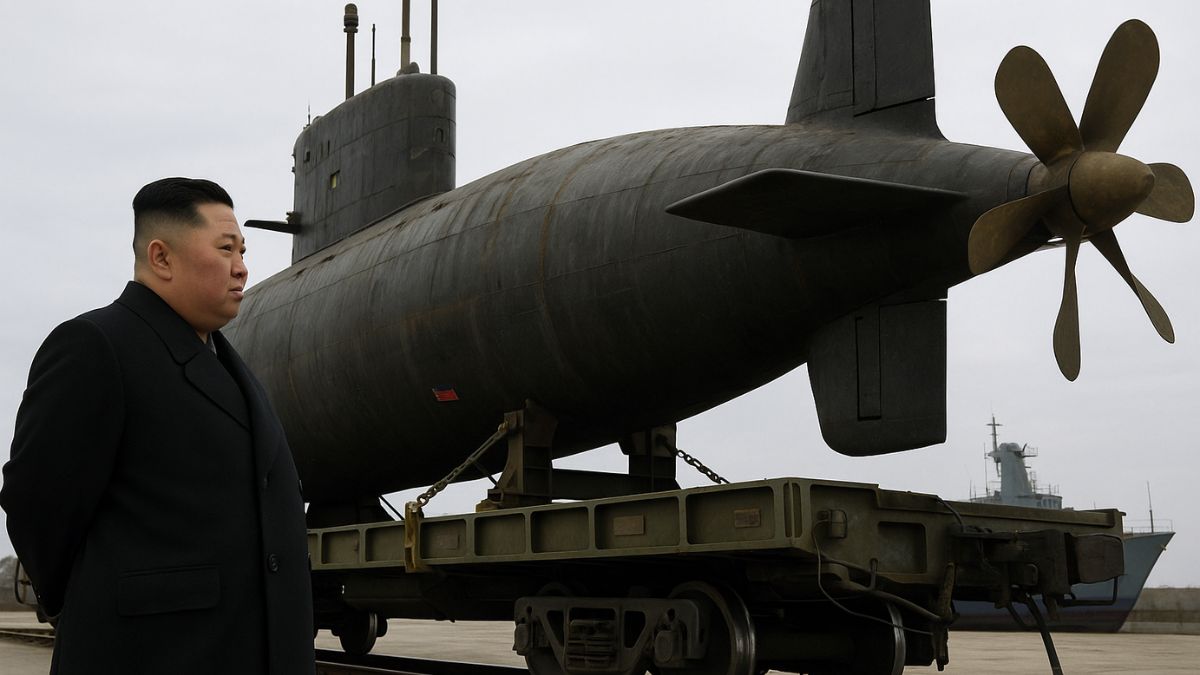South Korea is investigating intelligence reports suggesting that Russia has supplied North Korea with nuclear submarine reactor modules, a move experts say could significantly boost Pyongyang’s long-standing ambition to build a nuclear-powered navy.
According to South Korean daily JoongAng Ilbo, citing unnamed government officials, Moscow is believed to have transferred two to three reactor modules in the first half of this year. These modules allegedly included reactor cores, turbines, and cooling systems taken from decommissioned Russian submarines.
Wi Sung-lac, chief security adviser to President Lee Jae-myung, told reporters on September 17, 2025, that Seoul could not confirm the existence of such intelligence. Still, analysts argue the transfer is highly plausible given deepening Russia–North Korea military cooperation, particularly as Moscow continues its war in Ukraine.
How are the Russia–North Korea military ties growing?
“It is highly possible that the North persistently pressed Russia for help with submarine technology, including nuclear propulsion, and that Moscow eventually yielded to these demands,” said Hong Min, senior researcher at the Korea Institute for National Unification (KINU), as reported by South China Morning Post.
North Korea’s naval programme has been hampered by limited shipbuilding capacity. In 2023, Pyongyang unveiled the Hero Kim Kun-ok, its first tactical nuclear attack submarine. However, the vessel was a crude modification of a Soviet-era Romeo-class diesel submarine, and its missile-launching capability has never been verified.
In March this year, state media showcased Kim Jong-un inspecting what was claimed to be a construction site for a nuclear-powered guided-missile submarine, underlining Pyongyang’s determination to enhance its nuclear deterrent.
What are the technical hurdles that remain?
Despite the reported Russian transfer, experts caution that North Korea still faces major technical challenges. The most significant obstacle remains the development of a compact, low-yield reactor suitable for submarine deployment – a feat Pyongyang has not yet achieved.
“North Korea could reverse-engineer the Russian reactor — disassembling it to produce blueprints and conducting tests to gain know-how,” Hong said.
Lee Il-woo of the Korea Defence Network added that Russia might have transferred not only reactor modules but potentially an ageing Delta-IV class submarine. However, he stressed that Pyongyang still lacks critical materials such as high-tensile steel for hull construction and semiconductors for advanced sensors.
What are the strategic implications?
At the 8th Party Congress in January 2021, North Korea identified five core defence goals, including the development of nuclear-powered submarines and submarine-launched nuclear weapons. The alleged Russian transfer, if confirmed, would represent a breakthrough in this pursuit, potentially in exchange for Pyongyang sending thousands of troops to support Russia in Ukraine.
Yet, North Korea still lags far behind South Korea in naval capabilities. Seoul has already developed 3,000-tonne indigenous diesel-electric attack submarines and successfully test-launched a submarine-launched ballistic missile (SLBM) in 2021, cementing its technological lead in the region.
“We cannot rule out the possibility of Russia transferring submarine technology to North Korea, given their deepening military alliance,” said Yang Moo-jin, president of the University of North Korean Studies.
While the reports remain unverified, the possibility of Russia bolstering North Korea’s nuclear submarine ambitions adds a new layer of concern to regional security dynamics in Northeast Asia.
